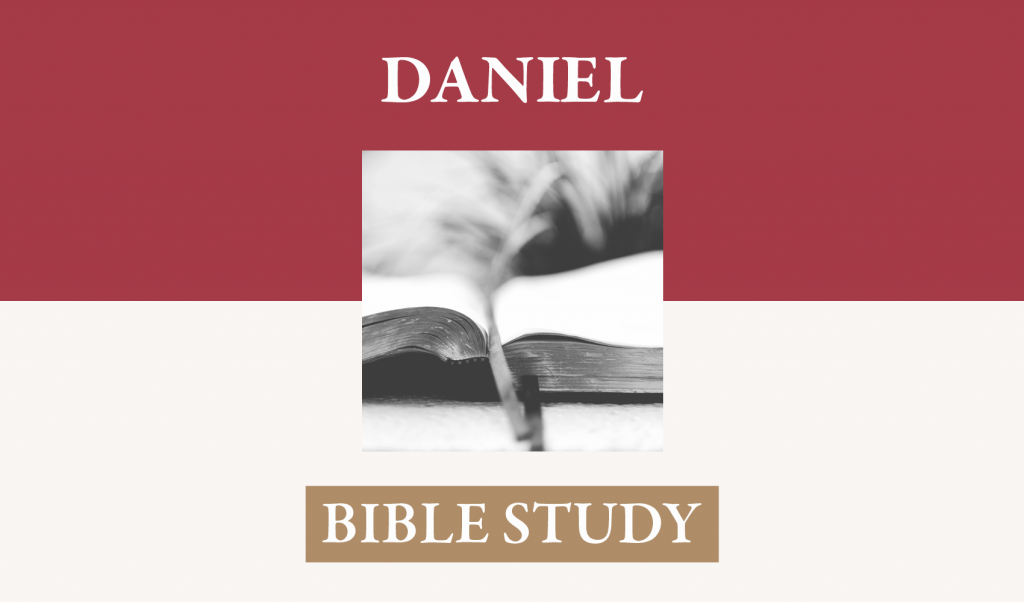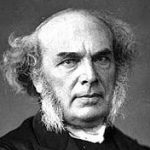The Point: Our prayers connect us with God’s plan.
God Reveals Nebuchadnezzar’s Dream: Daniel 2:12-30.
[12] Because of this the king was angry and very furious, and commanded that all the wise men of Babylon be destroyed. [13] So the decree went out, and the wise men were about to be killed; and they sought Daniel and his companions, to kill them. [14] Then Daniel replied with prudence and discretion to Arioch, the captain of the king’s guard, who had gone out to kill the wise men of Babylon. [15] He declared to Arioch, the king’s captain, "Why is the decree of the king so urgent?" Then Arioch made the matter known to Daniel. [16] And Daniel went in and requested the king to appoint him a time, that he might show the interpretation to the king. [17] Then Daniel went to his house and made the matter known to Hananiah, Mishael, and Azariah, his companions, [18] and told them to seek mercy from the God of heaven concerning this mystery, so that Daniel and his companions might not be destroyed with the rest of the wise men of Babylon. [19] Then the mystery was revealed to Daniel in a vision of the night. Then Daniel blessed the God of heaven. [20] Daniel answered and said: "Blessed be the name of God forever and ever, to whom belong wisdom and might. [21] He changes times and seasons; he removes kings and sets up kings; he gives wisdom to the wise and knowledge to those who have understanding; [22] he reveals deep and hidden things; he knows what is in the darkness, and the light dwells with him. [23] To you, O God of my fathers, I give thanks and praise, for you have given me wisdom and might, and have now made known to me what we asked of you, for you have made known to us the king’s matter." [24] Therefore Daniel went in to Arioch, whom the king had appointed to destroy the wise men of Babylon. He went and said thus to him: "Do not destroy the wise men of Babylon; bring me in before the king, and I will show the king the interpretation." [25] Then Arioch brought in Daniel before the king in haste and said thus to him: "I have found among the exiles from Judah a man who will make known to the king the interpretation." [26] The king declared to Daniel, whose name was Belteshazzar, "Are you able to make known to me the dream that I have seen and its interpretation?" [27] Daniel answered the king and said, "No wise men, enchanters, magicians, or astrologers can show to the king the mystery that the king has asked, [28] but there is a God in heaven who reveals mysteries, and he has made known to King Nebuchadnezzar what will be in the latter days. Your dream and the visions of your head as you lay in bed are these: [29] To you, O king, as you lay in bed came thoughts of what would be after this, and he who reveals mysteries made known to you what is to be. [30] But as for me, this mystery has been revealed to me, not because of any wisdom that I have more than all the living, but in order that the interpretation may be made known to the king, and that you may know the thoughts of your mind. [ESV]
“The opening of the story in chapter 2 begins with Nebuchadnezzar’s dream. After he awoke from his dream, Nebuchadnezzar summoned his professional interpreters – the magicians, the enchanters, the sorcerers, and the Chaldeans [2] – and told them that he needed their services. At this point, however, Nebuchadnezzar introduced an extraordinary complication. Instead of telling the diviners the dream, which they could then seek to interpret by reference to their books of dream interpretation and other such resources, he declared that they would have to find out the dream itself as well as its interpretation. The Babylonian wise men were horrified at this unreasonable demand. They could not meet it, for they were diviners and not prophets. That is, they sought to discern patterns in events and dreams that foreshadowed the future, but they claimed no direct access to the mind of the gods [10-11]. Unlike the God of Israel, the gods of the Babylonians were not so accommodating as to reveal their plans ahead of time through their representatives on earth [see Amos 3:7]. Thus in their view what the king asked of them was something impossible for human wisdom to accomplish. Here we see the uniqueness of the God of the Bible, who is both able and willing to reveal His plans and purposes to mankind. Nebuchadnezzar was so infuriated by this response that he commanded that all the wise men of Babylon be destroyed [12]. The failure of his diviners to reveal his dream and its meaning thus resulted in a decree of death for all of his wise men, including Daniel and his three friends [13]. When the bad news came to Daniel, he responded with a wisdom and faith in God far beyond his years [14-19]. Put yourself in Daniel’s shoes for a moment. At first sight, this decree must have seemed proof of the monumental meaninglessness of life. Daniel and his three friends had been preserved out of the holocaust of the destruction of Judah and then miraculously protected in the king’s court despite their commitment to eat only vegetables, but now they were condemned to death along with all the other wise men of the court. Simply because the king had a sleepless night and a fit of unreasonableness, their lives were now at risk – a decree went out, and the wise men were about to be killed; and they sought Daniel and his companions, to kill them [13]. Yet in the face of these adverse circumstances. Daniel didn’t panic. He understood that in spite of all appearances to the contrary, this bizarre event too was under the sovereign control of God, who had a purpose in all of it. This purpose turned out to be not simply to show Nebuchadnezzar the future through this dream, but to demonstrate clearly the difference between Daniel and the rest of the wise men of Babylon, and between his God and theirs. Nebuchadnezzar’s dream and his decree of death for the wise men was not a meaningless tragedy; rather, it would provide the context for God to display publicly His power. In the first place, God showed His power by granting Daniel initial favor before King Nebuchadnezzar. When Daniel requested a time to interpret the dream, the king granted Daniel his request [16]. Daniel and his friends then sought mercy from the God of heaven concerning this mystery [18]. In their prayer they pleaded with God to be faithful to His Word and to deliver them in their hour of need. They knew that their hope rested in God alone: if He did not reveal the dream to them, then there was nowhere else for them to turn. No mere human wisdom could deliver them from their predicament. Even in the complete absence of earthly signs of God’s favor, they nonetheless trusted in His bare word of promise to be their God in the midst of their distress, no matter where they might find themselves. Trusting in God alone like this is never a comfortable situation to be in, for by definition it means that all human means of support have been knocked away. It means that we have no one else to whom we can turn. Yet who could be better to turn to in a time of trial? Who is like the Lord as a helper and deliverer? God is both faithful and able to support us in our hour of need and to deliver us from our great distress. As we will see as we go further in the Book of Daniel, He doesn’t always deliver us from our trials in the way that He delivers Daniel and his friends here. Sometimes He delivers us by walking through the fiery trial with us, rather than saving us out of it. Yet the Lord is always faithful to His Word, and whenever we find ourselves at our wit’s end, it is always a good strategy to gather our friends and flee to God, pleading the promises of His Word and trusting in His sure faithfulness. In this case, the Lord answered Daniel’s prayer by revealing the mystery to him [19]. Yet Daniel did not immediately rush off to Nebuchadnezzar with the answer. Even with his life in the balance, Daniel took the time to give thanks to God for the answer he had received. This is where we so often fall short, isn’t it? We may pray passionately for a deliverance from our trials, but when that deliverance comes, we fail to return our thanks to God. Like nine out of ten of the lepers healed by Jesus [Luke 17:12-19], we go on our way rejoicing that our problems are solved. Eager to get on with life, we forget the one from whom our healing comes. Not so Daniel. He takes the time to praise God for the awesome deliverance he has received before he brings the answer to the king. Specifically, Daniel praises God for His power and His wisdom [20-23]. The Lord alone possesses the power to control world events. The future does not rest in the hands of the Babylonian gods, to whom the diviners looked. Their gods are empty idols, with no power either to bless or to curse their followers. They cannot affect the future, for they themselves are blind, dumb, and impotent [Isa. 44:18]. For all the pomp and show of the Babylonian diviners, their claims to anticipate the future are empty and void. The Lord is the one who raises up kings and deposes them. He sets the times and seasons for everything under the sun [21]. Yet Israel’s God does not merely control the future; He also reveals the future to His servants. He gives wisdom to the wise and reveals the mysteries of the future, as He has done in this case for Daniel [21-22]. This was precisely what the Babylonian diviners wrote off as impossible, because the gods do not dwell with men [11]. Yet Israel’s God, even though He is transcendent and exalted high above the heavens, does dwell with the humble and contrite of spirit [Isa. 57:15]. The one who governs the future has made it known to Daniel by revealing both the dream and its interpretation. The assertion that Israel’s God is the one who possesses all power and wisdom was an important reminder for Daniel’s hearers. As exiles in Babylon, they were surrounded by alternative religions that claimed to offer access to the hidden mysteries of the universe. The events of this chapter exposed the emptiness of these claims: there is only one God who reveals the future, because there is only one God who controls the future. However outwardly impressive the wisdom and power of the world may seem, they have no ultimate substance. Babylon’s gods were a sham and a lie. The same message is important in our own day and time. We too are surrounded by the power and wisdom of the world. Sometimes it takes explicitly religious shape and promises us enlightenment and deeper experience of life through New Age meditation or practices borrowed from Eastern religions. Sometimes it takes the form of an explicit denial that God can really know and control the future, preferring to imagine an “open” God who is struggling His way through the historical process alongside us. At other times, it comes to us in secular forms, promising power and success through applying its strategies in business and in personal relationships. It often presents impressive credentials and, like the Babylonian diviners, comes to us strongly endorsed by the society in which we live. The wisdom of the world looks outwardly very impressive, with its qualifications and influence in high places in our society. Yet at root the wisdom of the world is always an empty sham. It neither understands the true nature of humanity, nor the true nature of the world in which we live. How can it, when it denies the existence or ignores the relevance of the one true God who created and controls all things? His power works all things according to His will [Rom. 8:28]. His wisdom is the true source of insight for skillful living [Prov. 1:7]. Where are we to find that wisdom for our own lives? The Lord has revealed that wisdom to us in His Word, the Bible. We don’t need to flounder around seeking to piece together our own wisdom when we have this book. Nor do we need to be able to interpret strange dreams. Instead, we need to dive into its depths and ponder its profundity. We need to store it in our hearts and treasure its riches. This is not exactly a new observation, yet it is one that we need constantly to recall. For in practice, even as Christians, we often live our lives according to the wisdom of the world. If we pursued God’s wisdom with half of the enthusiasm with which we seek to progress in the world, we would be much wiser than we are. If we spent even half the passion on seeking God that we spend on seeking amusement, our lives would be far different from those of the people around us. Think back over this past week and see what pursuits have filled your hours and minutes. Have you sought the Lord’s wisdom and power, or poured yourself into the pursuit of the world’s emptiness? If we pursue God’s wisdom with a passion, then we too, like Daniel, will be distinct from the culture around us, and we will be better able to give those around us the answer to questions that are beyond them. Only the wisdom of the world’s Creator, the one for whom and by whom all things exist, will suffice. He reveals this wisdom to all in His Word and gives it to us to read. Should we not, like Daniel, thank and praise God for the richness of His gift to us, treasure this source of heavenly wisdom, and share it with our puzzled neighbors? God’s wisdom has a subjective as well as objective aspect to it. Objectively, His revealed Word tells me who God is and who I am, what I should believe about Him, and how I should please Him. This is a wonderful gift. Yet in order to live wisely in this world, I also need to be able to apply the principles of the Word subjectively in the various situations of life. Given the mandate to share the gospel with my neighbors, how should I best approach them with the good news of Jesus Christ? Given the commandment to love my wife and sacrifice myself for her, what does that mean for the way in which I order my time and my priorities today? Out of the various choices of employment or career in front of me, what does God want me to do with my life? Daniel had a grasp of both objective and subjective wisdom: objectively, he knew the Word of God, a knowledge that must surely have been implanted within him in his childhood, before he was carried into exile. He was thoroughly grounded in the Scriptures and ordered his behavior on the basis of them. Subjectively, though, he also recognized that God is able to guide indirectly through circumstances and, in this unique case, by dreams and visions, as well as directly through the Word. Such a balance of objective and subjective wisdom does not come to us through education or qualifications (though Daniel had both and we should not despise them). It comes in response to prayer. It is by humble petition that we come to understand the more challenging and difficult aspects of God’s revealed Word, as Daniel 9 will make clear. Yet it is also by humble petition that we seek to understand how God would have us apply that Word in the complex and challenging world in which we live. We need to learn to grow in our constant dependence upon God to live wisely, both as we read His Word and as we live our lives. At this juncture, we should note Daniel’s demeanor in approaching the king, which is to deflect all credit from himself to the Lord. The narrator has highlighted this for us by contrasting Daniel’s humility with the words of Arioch, the commander of the king’s guard. Arioch approached the king and declared, I have found among the exiles from Judah a man who will make known to the king the interpretation [2:25]. Actually, Arioch did nothing of the sort. He was ready to execute Daniel, along with the rest of the wise men. It was Daniel who went and found Arioch, not vice versa [2:24]. Yet Arioch was eager to claim at least some of the credit for this stunning turn of events for himself. This is the way the world works, isn’t it? Pass as much of the blame for your failures on to other people, and claim as much credit as you can for other people’s success. Instead Daniel is quick to not claim any credit for the interpretation for himself. Instead of promoting himself, Daniel took the opportunity publicly to exalt his God. There is a model here for all of us in our relationships with those who do not know our God. In contrast to the self-promoting way of the world, we should constantly seek occasions to exalt and declare publicly the praises of our God. Whatever gifts and abilities we have, whatever successes we may meet with in life, all of them are ultimately the work of the one who gave us those gifts and opportunities, along with the diligence and perseverance to pursue them. We are simply God’s servants, doing the work He has assigned to us; He deserves all of the praise and adoration. The biblical word for this attitude is humility: the perspective that sees our own size rightly in comparison to the surpassing greatness of our God. True humility comes when we look away from ourselves towards God and towards the one who is God revealed in human flesh, Jesus Christ. He shows us genuine humility at work in His constant attitude of dependence upon His heavenly Father. He shows us authentic lowliness of heart that turns away from the spotlight and the position of glory to serve the outcasts and the unacceptable, the lepers and the notorious sinners. The Lord of all eternity demonstrated that servant’s heart all the way to an inglorious death on the cross.” [Duguid, pp. 17-34].
Questions for Discussion:
1. How does Daniel’s trust in God’s sovereignty sustain and direct him during this crisis? How did God show His power to Daniel? Where does your attention focus during life’s crises?
2. List the characteristics with which Daniel describes God. To what do these lead in his prayer? Note how Daniel’s prayer focuses on God’s character. How does thinking about God’s attributes feed your prayers?
3. What do we learn about humility from Daniel in these verses? What is true humility?
4. Note the first thing Daniel did when his prayer was answered. He took time to give God credit for all wisdom and power, thanking God for answering his request. How do you feel when your prayers are answered? Excited, surprised, relieved? There are times when we seek God in prayer and, after having been answered, dash off in our excitement, forgetting to give God credit for the answer. Match your persistence in prayer with gratitude when your requests are answered.
References:
Daniel, James Montgomery Boice, Baker Books.
Daniel, Iain Duguid, REC, P&R Publishing.
The Message of Daniel, Ronald Wallace, Inter Varsity.

















